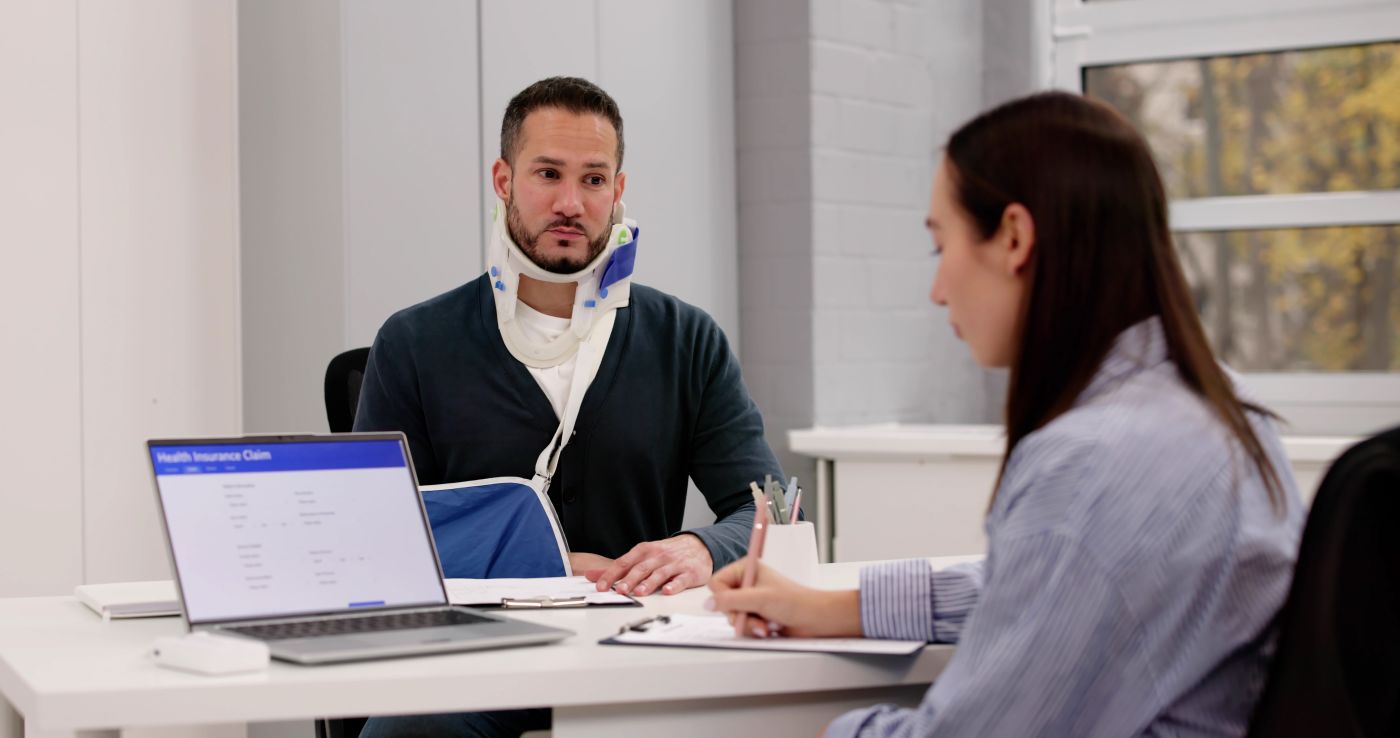
We work with clients across Utah on both family law and personal injury matters. While these areas of law may seem separate, they often overlap in ways that can significantly affect divorce settlements, custody decisions, and ongoing support.
Whether a car accident leads to long-term disability or a personal injury settlement becomes a contested marital asset, these intersections can reshape the entire course of a family law case.
Personal injury claims are usually seen through the lens of physical harm and financial recovery, but when one or both spouses are involved in these claims during or after a divorce, the legal and emotional stakes increase.
When we represent clients facing this situation, we make sure they understand how one legal issue can ripple into the other. Let's explore the ways these two legal paths can intersect and what it means for families working through divorce, custody, and support.
When a Personal Injury Settlement Is Considered Marital Property
One of the most common intersections between personal injury and family law involves asset division during divorce. In Utah, property is divided equitably, which doesn't always mean equally. When a spouse receives compensation from a personal injury settlement, it can raise questions about whether that money is considered separate or marital property.
The courts typically break a personal injury settlement down into several components:
Pain and suffering: Generally awarded to the injured party and often treated as separate property
Medical expenses: If paid using joint marital funds, reimbursement may be shared
Lost wages: Compensation for income lost during the marriage is often treated as marital property
Loss of consortium: Compensation given to a spouse for loss of companionship, which may also be treated as marital
Future lost income: If it applies beyond the marriage, it may be viewed as separate property
As we guide clients through divorce proceedings, we help them account for each part of the settlement. It's important to know how each category may affect the final division of assets, especially when the injury affects future earning potential.
The Effect of an Injury on Alimony and Support
Another key point where personal injury claims influence family law is in the calculation of alimony. In Utah, courts consider each spouse’s ability to support themselves when awarding spousal support. A personal injury can directly affect this ability.
If a spouse is injured and unable to work:
They may receive more support based on reduced earning capacity
They may pay less in support if they’re the higher earner but are now disabled
A settlement may replace income, affecting the support formula
We work closely with medical and financial professionals to understand the full extent of the injury and how it affects the individual’s long-term financial stability. If a settlement provides sufficient income, it might offset or replace alimony obligations. On the other hand, if the injured spouse requires long-term care, support may be increased to cover those needs.
Injuries to a Child and Custody Implications
Personal injury doesn't just affect spouses. When a child is injured—whether in a car accident or due to negligence—it can create significant challenges in custody disputes. If one parent is found to be negligent or responsible for the injury, that may affect their parenting time or decision-making authority.
Courts consider the child’s best interests above all else. In cases involving a child’s injury, the court may look at:
The circumstances of the injury: Was one parent negligent or reckless?
The response to the injury: Did both parents seek appropriate medical care and emotional support?
Ongoing care needs: Does one parent have better access to or provide better support for the child’s recovery?
Physical access or modifications: Is one home better suited to accommodate a child's new medical needs?
These questions are especially important when injuries lead to long-term disabilities. We help parents prepare and present clear records showing their capacity to support the child physically, emotionally, and financially, especially when disputes arise around blame or care quality.
Using Personal Injury Awards for Child Support
If a parent receives a personal injury settlement that significantly increases their income, it may affect their child support obligations. Even if that income isn't recurring, the courts may still factor it into support calculations.
Courts may consider:
The total value of the settlement
Whether the funds are structured (lump sum vs. payments)
What portion of the funds replaces income
The needs of the child going forward
For example, if a parent receives $500,000 due to an accident that prevents future employment, a portion of that award might be used to increase child support, especially if the award replaces what they would’ve earned while raising the child. Our firm helps clients document what portion of the settlement relates to lost income so that any support adjustments are fair and justified.
Guardianship and Injury-Related Disability
When a personal injury leaves a parent permanently incapacitated, guardianship questions may arise. A spouse may need to petition the court for full custody or guardianship of the children. In some cases, the injured parent may no longer be able to make legal or financial decisions, either for themselves or their children.
In these cases, we may assist with:
Petitions for guardianship: Over children or the incapacitated adult
Modifications to custody: To account for changes in parenting ability
Trust and estate planning: For long-term financial support from settlements
Healthcare directives: That clarify how medical decisions should be made moving forward
These situations often emerge unexpectedly. Having a personal injury case and a family law case active at the same time requires coordination, documentation, and sensitivity. Our firm makes sure each legal process supports the other rather than working at cross purposes.
How Timing Affects Both Claims
Another layer of difficulty comes from the timing of a personal injury case relative to a divorce or custody proceeding. If an injury happens before the divorce is finalized, it may affect property division, custody, or support. If it happens afterward, it may open the door to future modifications.
Some key timing issues include:
Injury before divorce filing: The settlement may be divided during divorce
Injury during the divorce process: May delay or complicate negotiations
Injury after divorce finalization: May allow for support or custody modifications
We help clients assess how timing affects their rights and responsibilities. If you're pursuing both a personal injury claim and going through a divorce, it's essential to coordinate both cases so one doesn't weaken the other.
Settlements as a Tool for Securing Family Stability
While personal injury cases often come with hardship, they can also create opportunities for financial stability. If managed properly, a settlement or award can help support a child’s future, provide long-term care for an injured spouse, or even resolve ongoing disputes over money.
We’ve helped clients structure settlements in ways that support family law outcomes, such as:
Creating a trust to protect and manage funds
Setting up structured payments to avoid support recalculations
Earmarking funds for medical or educational expenses
Reducing financial conflict by clarifying fund use in court orders
Clear communication and court-approved planning help avoid future disputes and preserve the purpose of the settlement: recovery and stability.
Coordinating Legal Strategy Across Cases
Because family law and personal injury law involve different courts, different procedures, and different rules of evidence, it's easy for one case to complicate the other. That’s why we take a coordinated approach when clients face overlapping legal issues.
Our firm works to:
Keep both cases informed: So deadlines and filings support rather than conflict
Avoid conflicting testimony: Especially in emotionally charged hearings
Maximize strategic outcomes: By timing hearings and settlements wisely
Protect client credibility: Across all court proceedings
We've seen firsthand how good communication between courts, clients, and legal professionals can protect both your personal well-being and your legal rights.
Steps to Take if You’re Facing Both Issues
If you're dealing with a personal injury and going through a divorce or custody dispute, there are several steps you can take to protect yourself and your family:
Tell your lawyer about both cases: So we can manage them together
Keep detailed records: Of medical care, financial changes, and court communications
Don’t sign settlement agreements: Without considering their impact on your family law case
Request temporary orders: If an injury affects custody, visitation, or housing
Focus on documentation: Courts rely heavily on clear, factual support
We make sure these steps are followed and help our clients avoid unnecessary legal surprises. Whether you’re the injured party or the one affected by someone else’s injury, the details matter.
Speak to a Divorce Lawyer
When personal injury and family law cases overlap, the legal and emotional stakes often rise. We help clients manage these cases in ways that protect their rights, preserve their family’s well-being, and avoid future complications. Attorney Preston Day serves clients throughout Utah, including Salt Lake County and Utah County. Let’s talk about how we can support your case from every angle.


